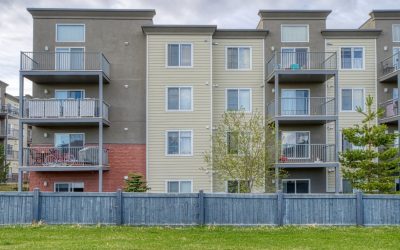May 20, 2021
Real estate is an asset class that has stood the test of time and allowed many investors to generate substantial wealth. By following the three core principles of real estate investing, summarized below, it is possible to generate positive returns in any market cycle, including throughout recessions.
1. Buy for Cash Flow
Buying for cash flow allows you to invest in properties that are already generating a relatively predictable return. The future cash flow of a stabilized property is predictable and can be determined by looking at past financial performance. Cash flow can then be improved through good management which optimizes income and decreasing expenses. With a positive cash flow, the operator can service the debt on the property and then look for a ways to force appreciation and boost returns. Forced appreciation can be accomplished through value-add renovations or by making operational improvements to the property.
2. Secure Long Term Debt
Securing long term debt with the appropriate amount of leverage can determine the ability of a property to weather any downturn in the market. Using leverage can result in stronger returns on a property if there is a high capitalization rate spread. Lower interest rates can result in higher cap rate spreads; and interest rates for mortgages are historically low. This creates opportunity for operators to capitalize on the low interest rate environment to generate strong risk-adjusted returns through the recession. With longer term debt in place, the longer timeline improves the operator’s ability to generate positive returns through a recession. It allows the operator to hold onto the property and wait for the market to appreciate in order to sell the property at the most opportune time.
3. Have Adequate Cash Reserves
The quote “cash is king” is very applicable in real estate investing, especially during a recession. Operators that are well capitalized are able to generate positive returns through a downturn and can then reap the rewards when the market recovers. A large apartment community can have fairly predictable expenses with future operating costs that can usually be projected quite accurately. If an operator is experienced and conservative in their budgeting, they are able to be prepared to have adequate cash reserves on hand to easily cover all operating expenses, even if there is a dip in occupancy or rent collected.
Westbow Capital
Westbow Capital looks to apply all these principles across numerous markets in Canada, where properties are generating strong cash flow upon acquisition. We can leverage our experience in construction and property management to add value through renovations and operational improvements.
Related Articles
Understanding BC’s 2025 Rent Increase Cap
The Province of British Columbia recently announced a maximum allowable rent increase of 3.0% for 2025, directly tying it to inflation rates.
Economic Uncertainty? Here’s Why Multifamily Real Estate Is Still the Best Investment in 2025
Discover why multifamily real estate remains a stable, high-yield investment in 2025’s uncertain economic climate.
How We Create Value for Our Investors: Inside Our Multifamily Strategy
Discover how our value-add multifamily strategy drives NOI growth, increases property value, and maximizes investor returns.
Meet the Experts: How Our Investment Team Helps You Build Wealth
Building wealth isn’t just about making smart investments—it’s about having the right team behind you. At Westbow Capital, we build strong relationships with investors while acting as responsible stewards of their assets. Through this partnership, we seek to establish...




